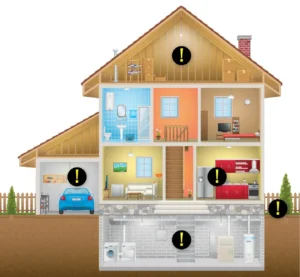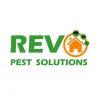Pest Control in the Age of Technology: Innovations and Future Developments
The field of pest control has undergone a significant transformation in recent years, thanks to advances in technology. New technologies are making it possible to control pests more effectively, efficiently, and sustainably.
One of the most significant technological advances in pest control is the development of integrated pest management (IPM). IPM is a holistic approach to pest control that combines a variety of methods, including biological control, habitat modification, and pesticide use. IPM is more effective and sustainable than traditional methods of pest control, and it is becoming increasingly popular.
Another important technological development in pest control is the use of bait stations. Bait stations are devices that contain pesticides or other substances that attract and kill pests. Bait stations are a more effective and targeted way to control pests than traditional methods, such as spraying.
Remote monitoring is another emerging technology that is having a major impact on pest control. Remote monitoring systems use sensors to collect data about pests and their environment. This data can be used to identify pest problems early on and take action to prevent them from becoming major infestations.
Robotics is another area of technological innovation that is having an impact on pest control. Robots are being developed that can be used to inspect buildings and other structures for pests. Robots can also be used to apply pesticides or other substances to control pests.
These are just a few of the technological innovations that are transforming the field of pest control. As technology continues to advance, it is likely that we will see even more innovative and effective ways to control pests in the future.
Here are some of the future developments in pest control that we can expect to see:
- The development of new pesticides that are more effective and less harmful to the environment.
- The use of nanotechnology to target pests more precisely.
- The development of new methods of biological control.
- The use of artificial intelligence to improve the efficiency of pest control.

These are just a few of the ways that technology is changing the field of pest control. As technology continues to advance, we can expect to see even more innovative and effective ways to control pests in the future.
How can pest control businesses stay ahead of the curve?
Pest control businesses that want to stay ahead of the curve need to be aware of the latest technological innovations. They should also be prepared to invest in new technologies as they become available. By staying ahead of the curve, pest control businesses can ensure that they are providing the best possible service to their customers.
Contact us today to schedule a pest control consultation for your business in Cyprus. Our team of experts will keep your business safe, clean, and pest-free!
Read more in our Greek Blog
